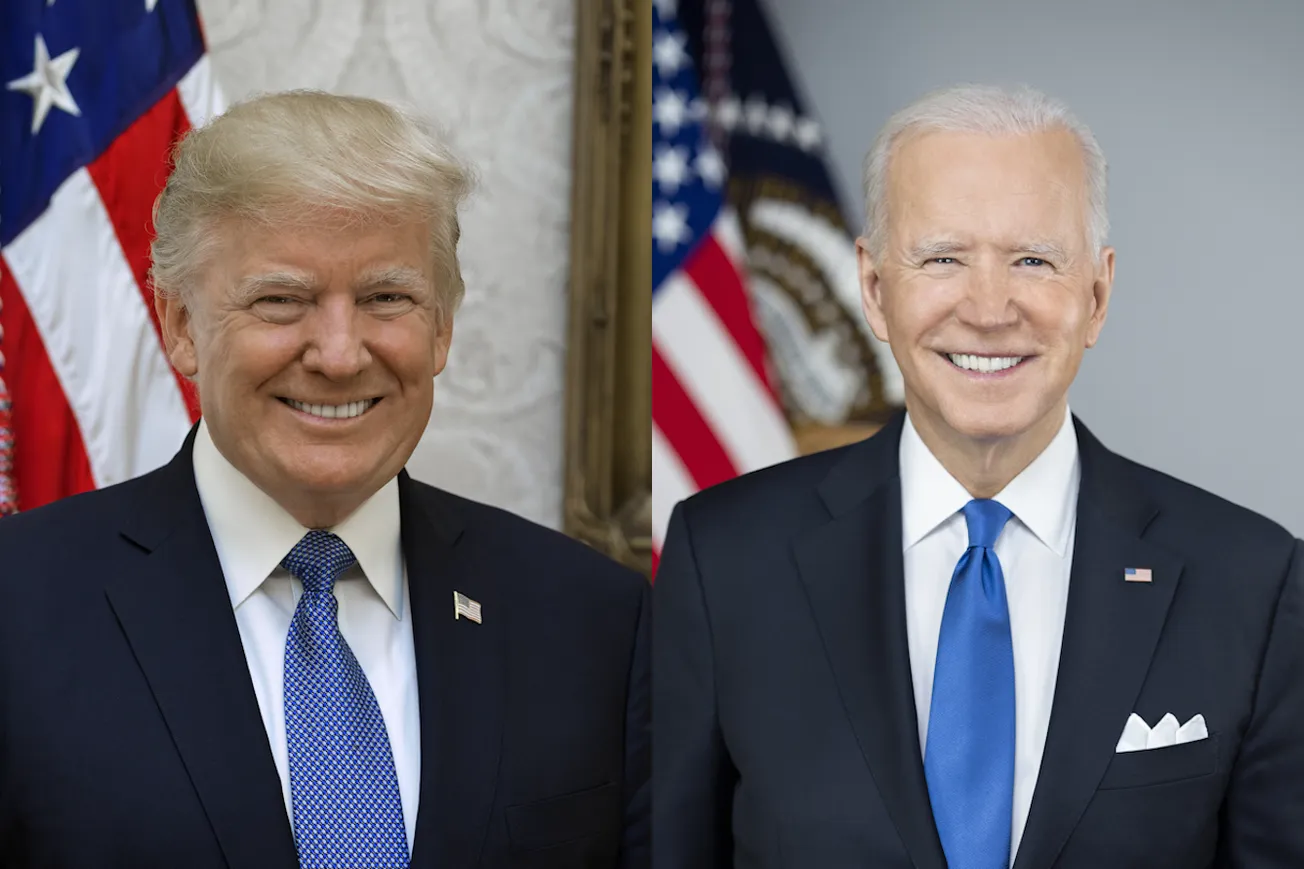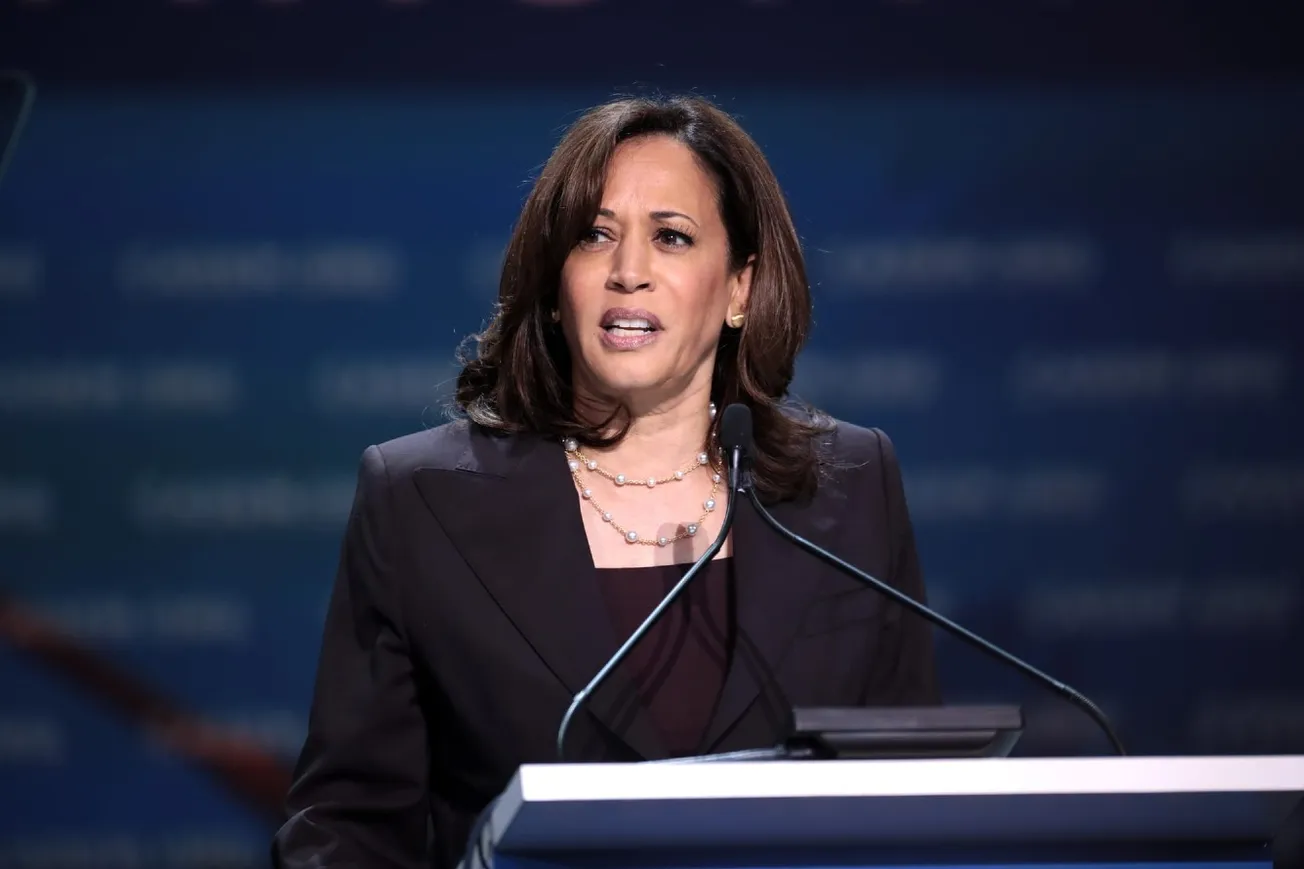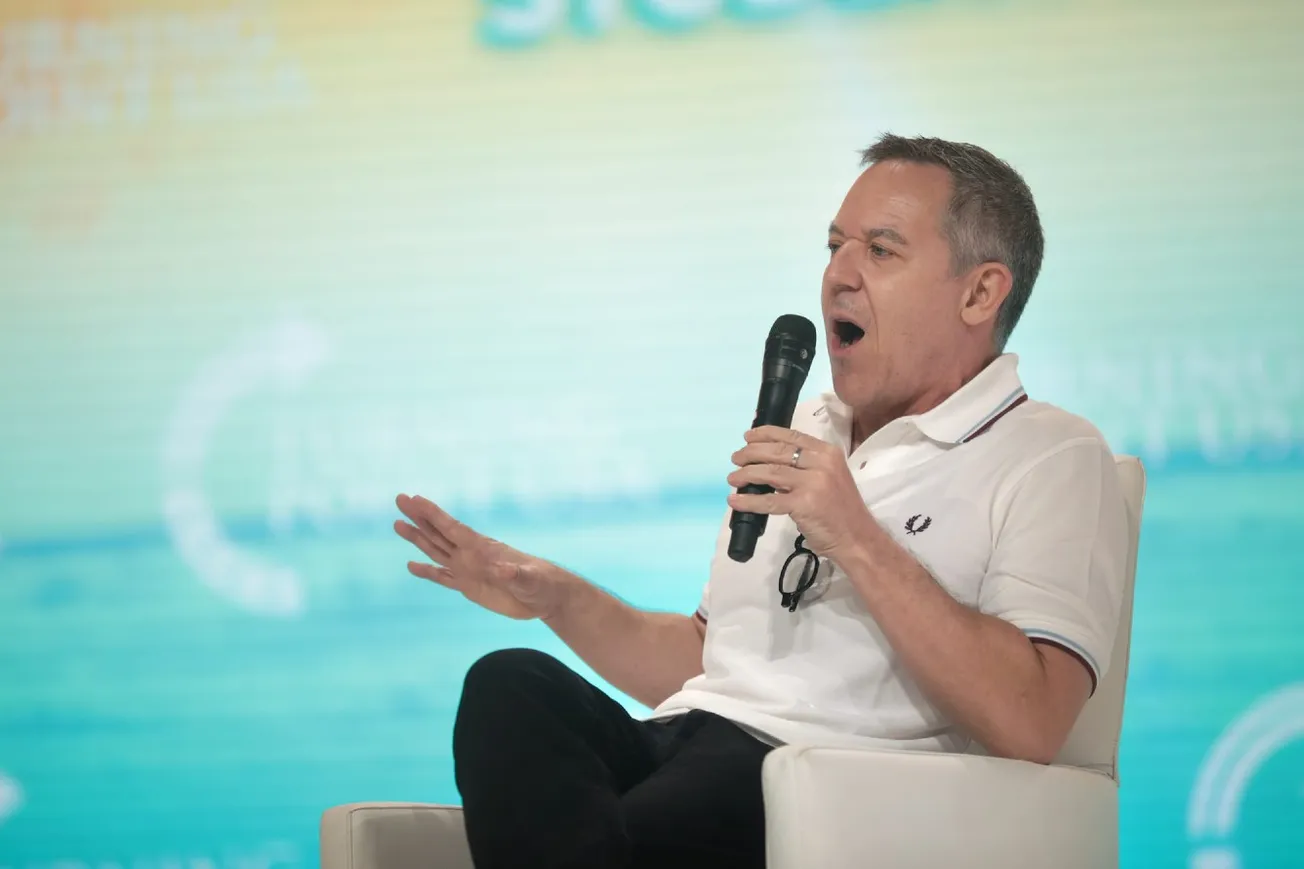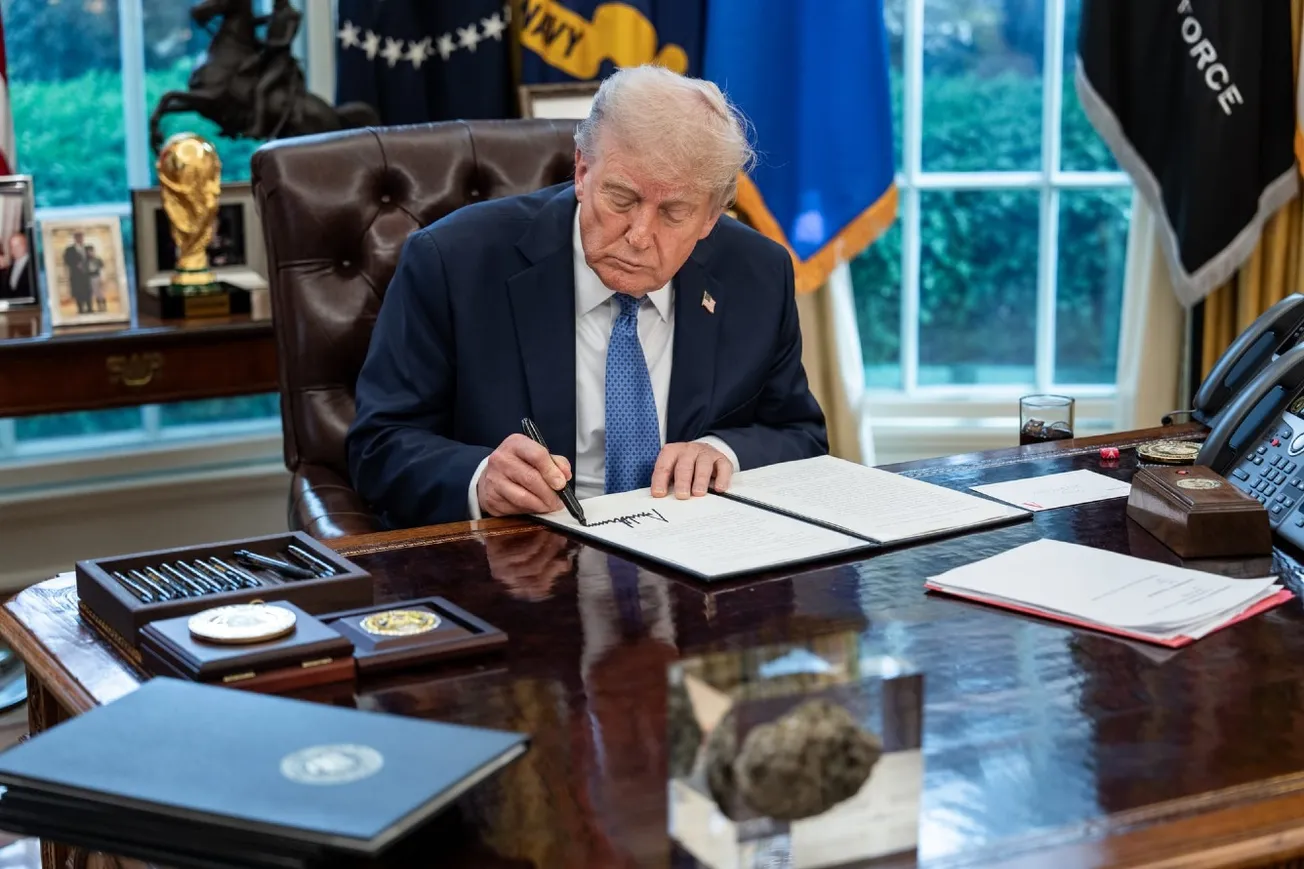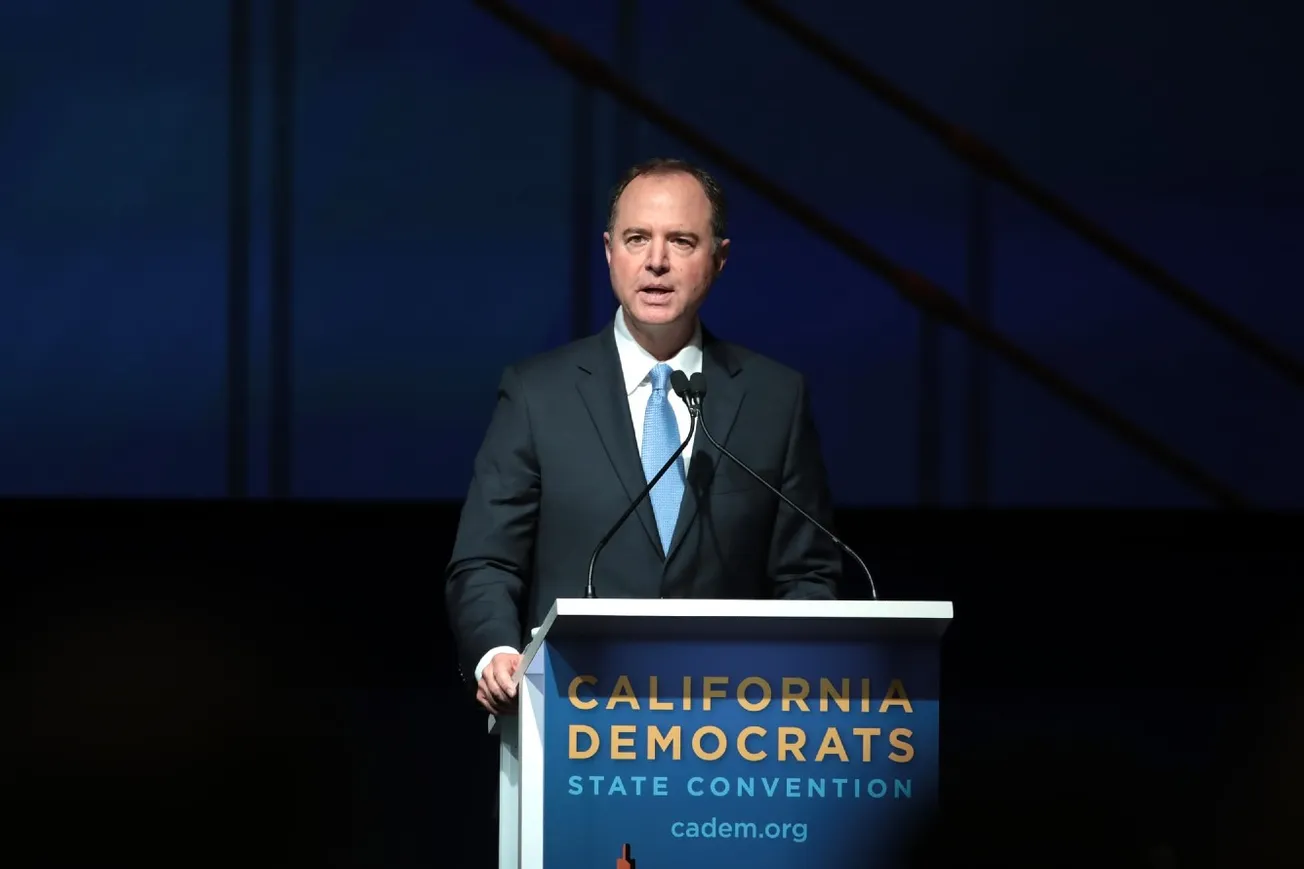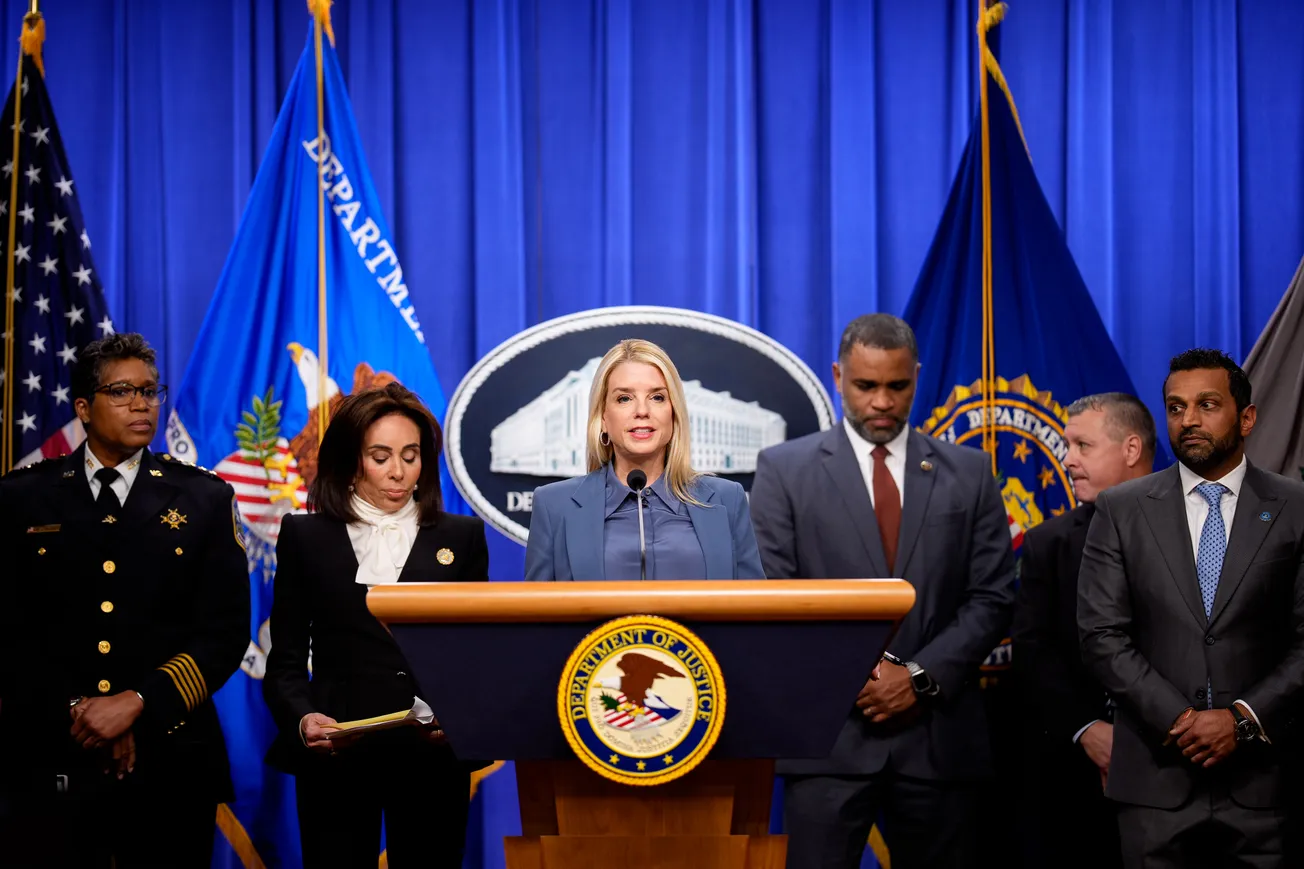Both of the leading candidates for president in 2024 have come under intense scrutiny and political pressure in recent weeks, but it hasn't dimmed their prospects much. Both President Joe Biden and former President Donald Trump maintain solid leads against their main party rivals, the latest I&I/TIPP Poll shows. The big question is, can it last?
In the national online poll of 616 Democrats, taken from July 5-7 and having a +/-4.0 percentage point margin of error, we once again asked the party faithful the following question: "If the Democratic presidential primary were held today, whom would you support for the nomination?"
Once again, President Biden emerged substantially ahead of the field of challengers, but that came before a rough week of gaffes, stumbles, confusion and embarrassing behavior during his overseas trip in Europe. Some 36% of those responding said they would support Biden in the primary, even after the Hunter Biden bribery scandals. Once again, none of the 16 likely challengers to Biden received more than a single-digit poll reading.
Biden is followed in descending order by former First Lady Michelle Obama (9%), Vermont Sen. Bernie Sanders (8%), Vice President Kamala Harris (7%), Transportation Secretary Pete Buttigieg (5%), former Secretary of State Hillary Clinton and environmentalist lawyer and activist Robert F. Kennedy Jr. (both at 4%), Massachusetts Sen. Elizabeth Warren, Rep. Alexandria Ocasio-Cortez and California Gov. Gavin Newsom (3%), and Minnesota Sen. Amy Klobuchar (2%).
A long list of others, including New Jersey Sen. Cory Booker and West Virginia Sen. Joe Manchin, won 1% or less of the tally.
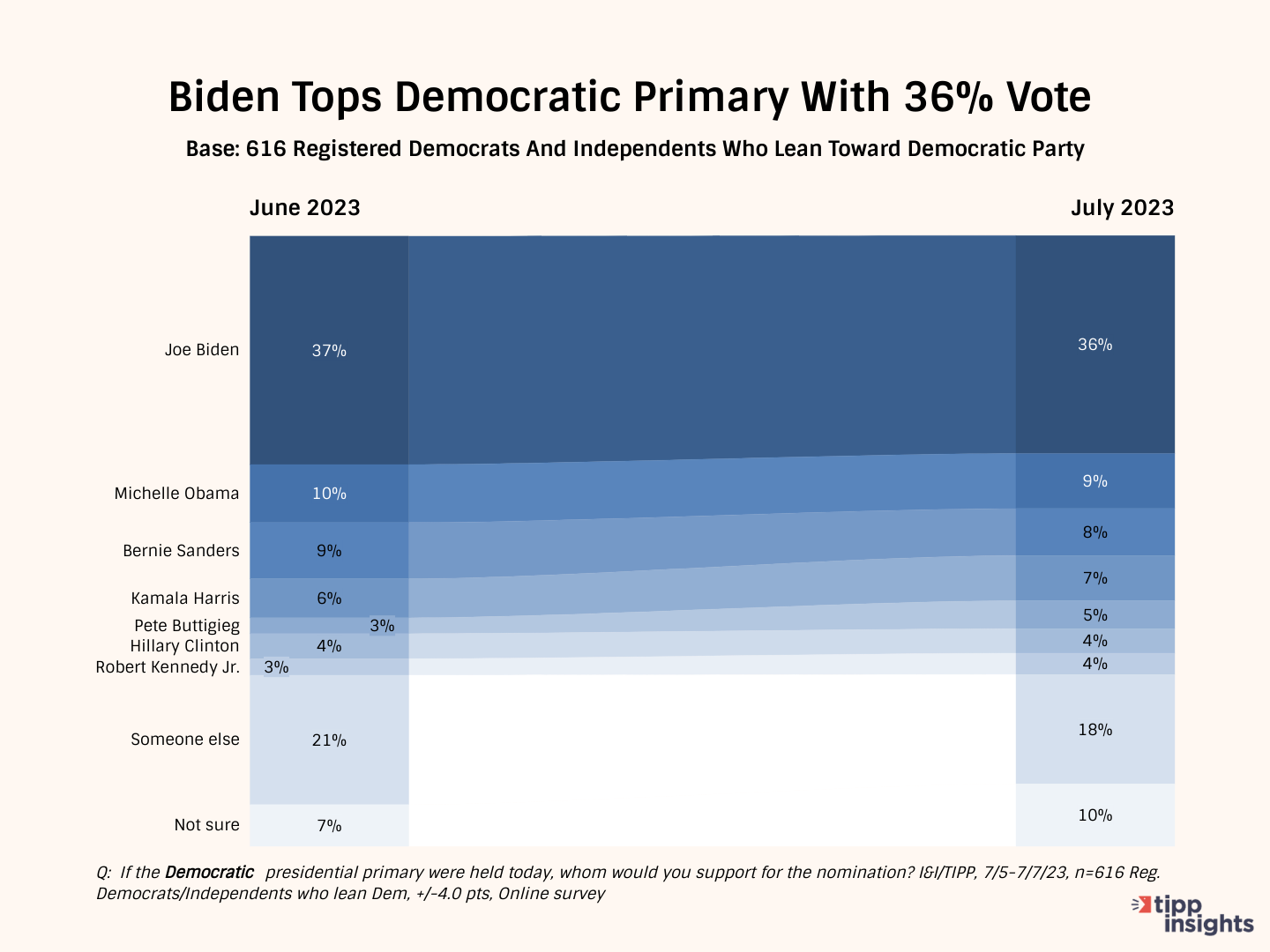
In short, despite the lowest favorability ratings of Biden's presidency and increasing talk of replacing the 80-year-old president with a younger, more vigorous candidate in 2024, Biden's 27-point lead remains fairly steady, even without an actual majority in his own party.
But one interesting divergence pops out when looking at independent voters likely to vote Democratic. While they make up roughly 18% of the total sample for the Democrats, just 20% say they'll support Biden.
Meanwhile, among those same independents, both Obama (11%) and Sanders (12%) creep into the double-digit range for support. As is often true, turnout will be key.
Once again this month, we also asked Democrats whom they would pick between Biden and the two newcomers who are often thought to pose the biggest outside challenge to the Democratic Party: Robert F. Kennedy Jr. and Marianne Williamson.
Against those two, Biden took 60% of the vote. But that was down from 68% in June. Kennedy got 16%, up from 12%, and Williamson took 5%, up from 4%.
No doubt, not all of those we've polled against Biden will run next year. If so, that leaves an estimated 51% of the Democratic vote up for grabs by remaining potential challengers, or a Biden replacement. And even that 51% number doesn't include the 3% who responded that they'd pick "someone else" or the 10% who said they're "not sure".
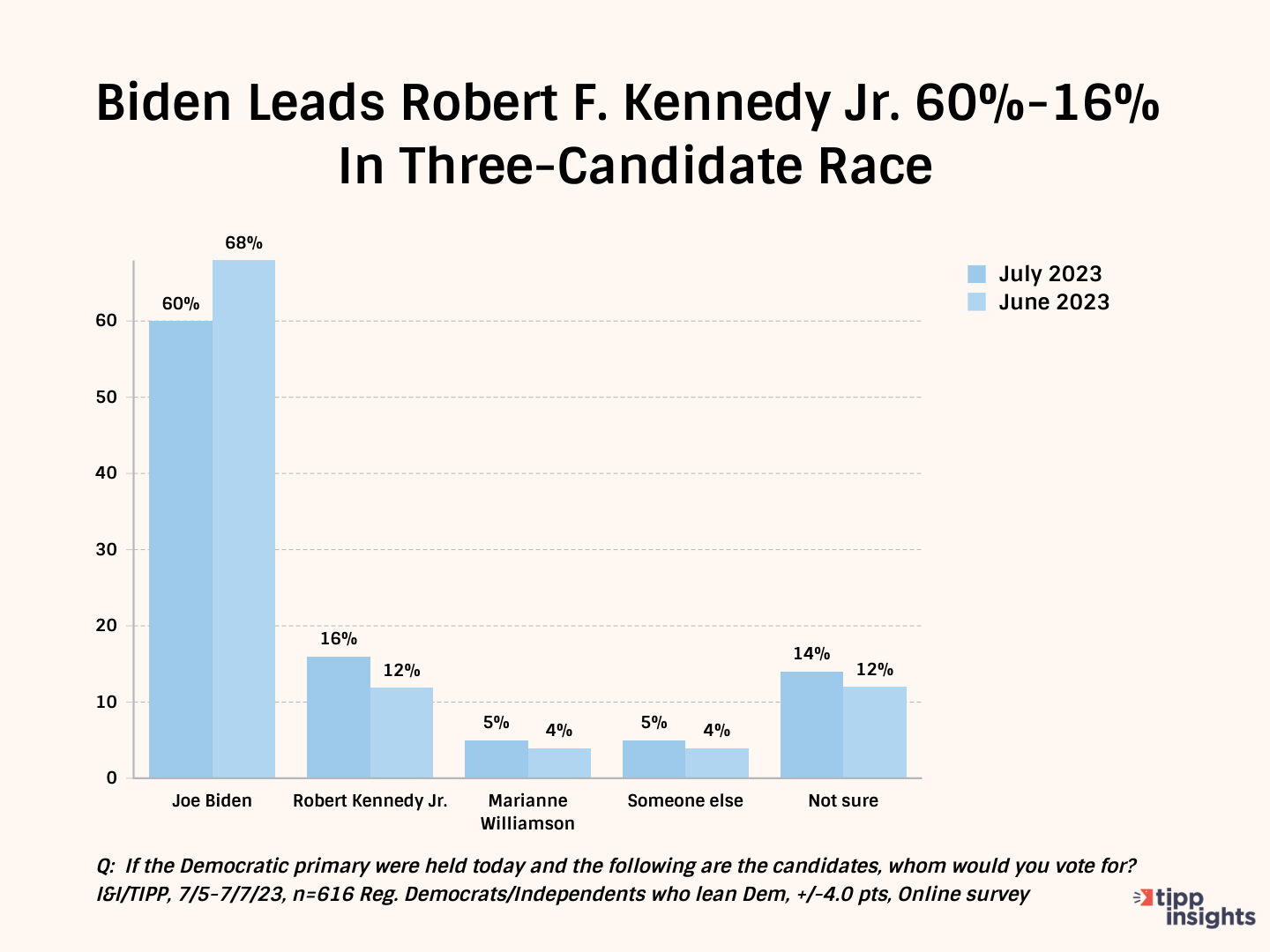
So, despite having a fairly solid plurality lead of the votes, Biden appears vulnerable to a potent challenge from below or from outside his own party.
Indeed, already, word is leaking out from Democratic circles that some party insiders want to find a clean way to keep Biden from running in 2024, given his weak numbers, including Americans' 51%-29% disapproval of Biden's economic policies in a recent IBD/TIPP Poll.
Turning to Trump, despite multiple investigations and indictments pending, his polling numbers, seem to be holding up just fine.
In the online I&I/TIPP Poll of 486 likely Republican primary voters and a +/-4.6 percentage point margin of error, Trump garnered 53% of GOP support. Coming in a distant second place was Florida Gov. Ron DeSantis at 14%, a 39-point gap. As recently as February of this year, DeSantis stood at 27% support, versus 50% for Trump, a 23-point gap.
After No. 2 DeSantis come entrepreneur and author Vivek Ramaswamy (7%), former Vice President Mike Pence (6%), former South Carolina Gov. Nikki Haley and current South Carolina Sen. Tim Scott (both at 3%), and former New Jersey Gov. Chris Christie (2%).
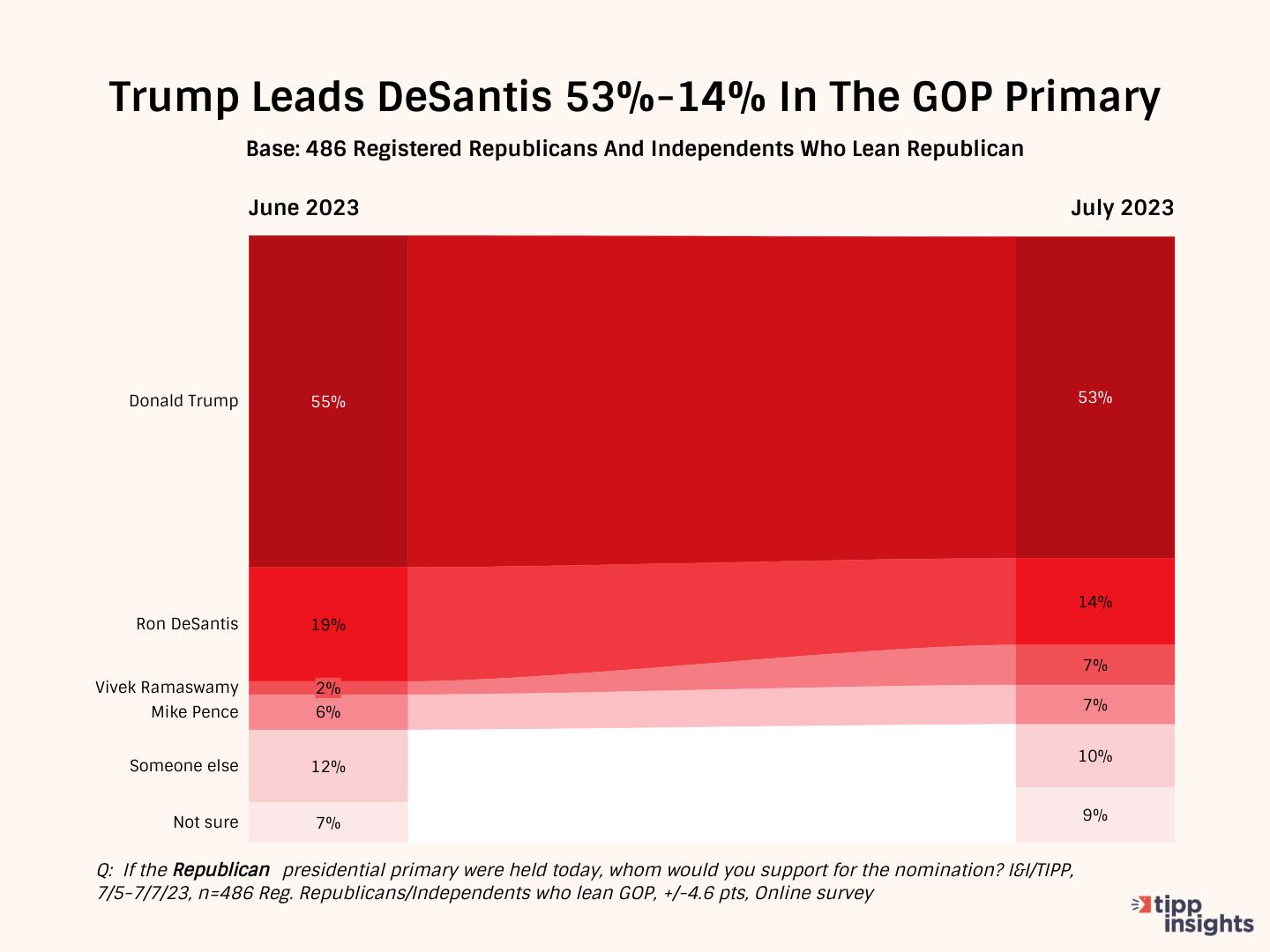
That group was followed by former Arkansas Gov. Asa Hutchison, North Dakota Gov. Doug Burgum, political commentator and radio show host Larry Elder, all at 1% or less.
For Republicans, the sorting may have already begun. Last week's Q&A session between former Fox News host Tucker Carlson and several leading Republican candidates at the Family Leadership Summit in Des Moines, Iowa seemed to go well for some — DeSantis, Ramaswamy, Scott, Haley — but not for either Pence or Hutchison.
Looming large on the screen is a possible third-party challenge to Biden's candidacy from someone within the Democratic Party or on the populist left. Such a challenge could also siphon votes from Trump, with a big impact on a close race.
This isn't far-fetched. For those who remember, this very scenario played out in 1992, when third-party populist candidate H. Ross Perot siphoned 19% of the vote, most of it from George H.W. Bush's total, in the final election. That handed the presidency to Bill Clinton.
And, yes, such a movement already exists: The so-called "No Labels" movement.
“The prospect that No Labels will nominate a candidate at their April convention and gain ballot access across the country is causing an increasing amount of alarm in the Democratic Party,” noted the online news website Axios last week.
Those mentioned as possible standard-bearers for the third party effort include West Virginia's Manchin, RFK Jr. and new age thinker, author and politician Marianne Williamson. This has both Democrats and Republicans concerned.
Indeed, as the Washington Post reports, "Former House Democratic leader Richard A. Gephardt is planning to launch a new bipartisan group next week to oppose the No Labels third-party presidential effort."
That effort got a boost from its own poll of voters across the country, which showed that a third-party candidate could spell big trouble for Democrats in 2024. That survey found Trump with a 40% to 39% lead over Biden, with a potential third party candidate taking 21%. Without a third party challenger, Biden beats Trump by 52% to 48%, the group said.
So while both Trump and Biden now have solid leads in their respective parties, it might pay to keep an eye on the sidelines for a third party challenger to either, or both, major candidates.
I&I/TIPP publishes timely, unique, and informative data each month on topics of public interest. TIPP’s reputation for polling excellence comes from being the most accurate pollster for the past five presidential elections.
Terry Jones is an editor of Issues & Insights. His four decades of journalism experience include serving as national issues editor, economics editor, and editorial page editor for Investor’s Business Daily.
Hey, want to dig deeper? Download data from our store for a small fee!
Our performance in 2020 for accuracy as rated by Washington Post:
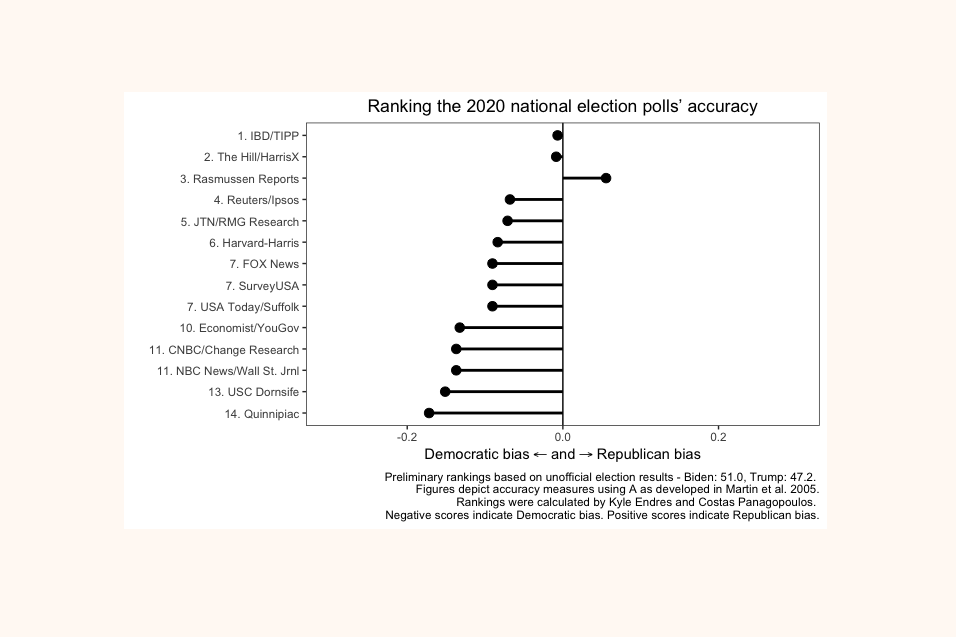
Like our insights? Show your support by becoming a paid subscriber!

